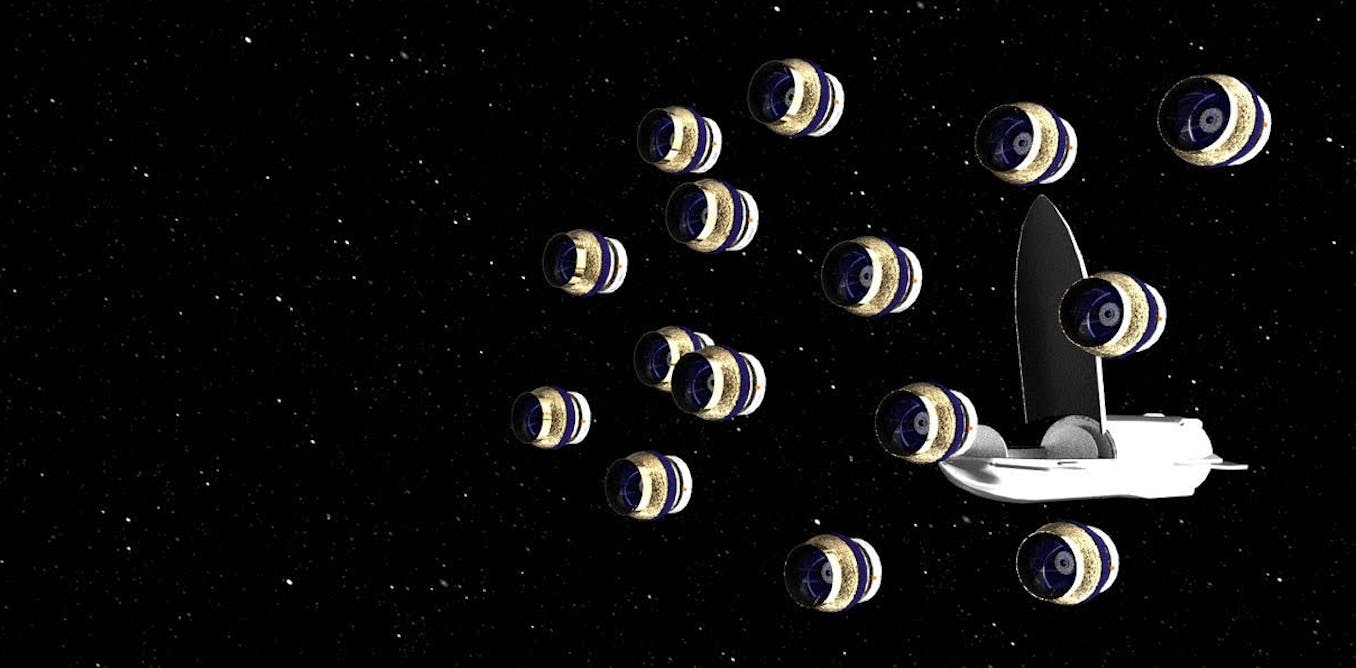Any experts out there want to weigh in on this? Sounds great in the article but I’m too much of a novice to identify potential drawbacks. Is it too good to be true?
What they’re describing is a holographic lens, basically.
Holograms have the neat property that a holographic photograph of a lens will behave like a lens. You can skip a step and just imprint the idea of the lens into a holographic film directly without actually taking a photo, but the idea is the same.
The result is a sheet of something like glass or plastic, which can be as thin as you like, which behaves as if it were a huge glass lens which would have been so think you couldn’t realistically use it.
It’s a great idea, but very difficult to manufacture because you need to add something kind of similar to a fingerprint to the surface of your glass which is so small that the gap between ridges is smaller than the wavelength of light. That means they’re only a couple of hundred nanometres apart (at most).
We can do that, but it’s very difficult to do it correctly over the whole surface of a usefully large lens. I’ve known of people trying a decade ago, and they weren’t getting anywhere fast



